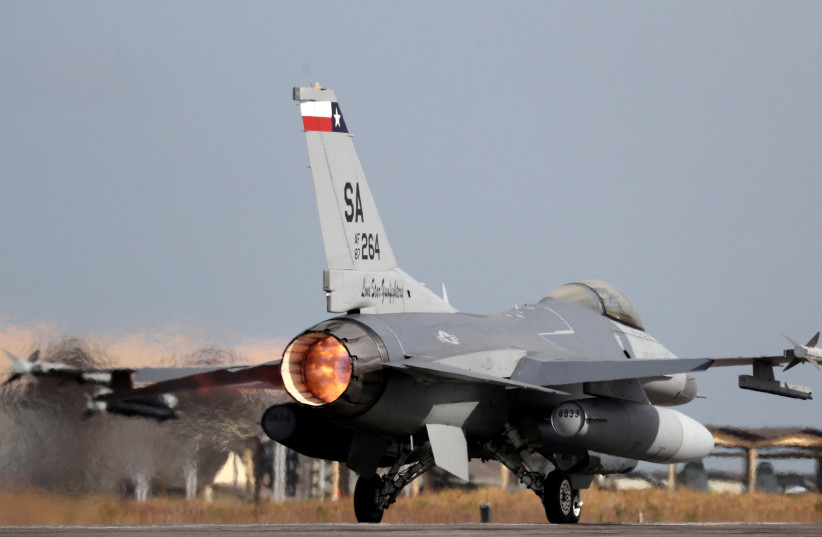US Secretary of State Antony Blinken met on Wednesday with Turkish Foreign Minister Mevlut Cavusoglu in Washington, a belated official visit by Turkey's top diplomat that will focus on the potential sale of F-16 fighter jets and Ankara's refusal to green-light NATO membership for Sweden and Finland.
The two foreign ministers have met before on the sidelines of NATO summits and United Nations meetings but it took the Biden administration almost two years to extend an official invite to Cavusoglu, a delay that many analysts say reflects a strained relationship.
Russia's invasion of Ukraine, Syria policy, energy cooperation and regional security issues will also be on the agenda, US and Turkish officials said.
The United States has praised Turkey for some of its actions during the Ukraine war, including mediating grain corridor talks, but also worries about Ankara's deepening relationship with Moscow.
The countries are also at odds over Turkey's desire to carry out a military operation into Syria and its intent to normalize ties with Damascus. For its part, Turkey demands Washington not support the Syrian Kurdish militia that it sees as terrorists.

NATO ties put to the test
Ties between the NATO allies have loosened since Turkey acquired Russian missile defense systems in 2019, which led to Ankara's removal from the next-generation F-35 fighter jet program.
Turkey now hopes to buy F-16 jets from the United States, a sale that some top members of Congress oppose despite support from the Biden administration.
The US lawmakers objecting to the sale cite Turkey's deteriorating human rights track record and Syria policy. But recently, Ankara's refusal to ratify NATO membership of Sweden and Finland is emerging as a more central reason in their opposition.
“Turkey’s foreign minister is looking to seal the deal on the sale of F-16s to his country,” said Jonathan Schanzer, Senior VP at the Foundation for Defense of Democracies in Washington. “But there is growing and legitimate bipartisan concern in congress about such a deal,” he said.
“From Ankara’s support to Hamas, Iran and ISIS to preventing qualified European states from joining NATO, Turkey has proven itself to be a deeply unreliable ally. Turkey’s reputation is deeply damaged in Washington. It’s therefore not clear to me whether Cavusoglu can accomplish his mission, even with White House backing.”
“Israel’s position on Ukraine cannot change significantly,” said Schanzer. “Intelligence and other non-kinetic assistance will flow. But the iron dome is off-limits. The Israelis rightly fear for its efficacy if a battery is captured on the battlefield by Russia. The Russians would almost certainly hand it over to Iran for the purposes of reverse engineering and identifying its vulnerabilities.”
Jonathan Schanzer, Senior VP at the Foundation for Defense of Democracies in Washington
He went on to say that Turkey’s support for Ukraine has been inconsistent. “And that may be another vector for engagement. But even full collaboration is unlikely to sway the legislators that stand opposed to rewarding Turkey for past bad behavior.”
Schanzer also addressed the possibility that the Biden administration will also apply pressure on Israel to be more vocal in its support for Ukraine. “Israel’s position on Ukraine cannot change significantly,” said Schanzer. “Intelligence and other non-kinetic assistance will flow. But the iron dome is off-limits. The Israelis rightly fear for its efficacy if a battery is captured on the battlefield by Russia. The Russians would almost certainly hand it over to Iran for the purposes of reverse engineering and identifying its vulnerabilities.”
